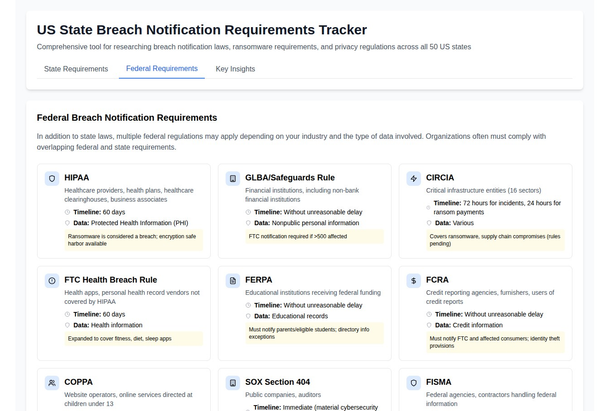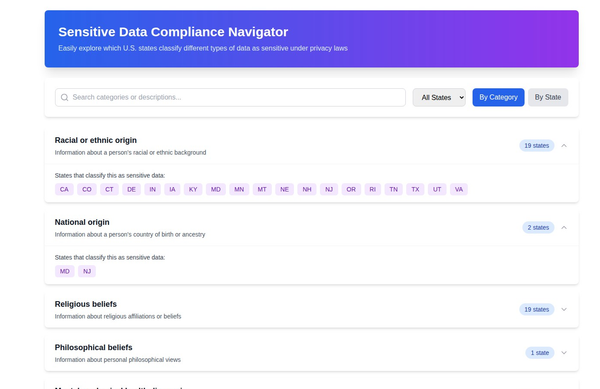In-Depth Analysis of the Utah Consumer Privacy Act (UCPA)

The Utah Consumer Privacy Act (UCPA), effective December 31, 2023, is a significant piece of legislation designed to protect consumer data privacy in the state. As the fourth state to enact such a law, Utah's approach focuses on businesses with substantial revenue and data processing activities. This article explores the key components of the UCPA, its implications for businesses, and the rights it grants to Utah residents.
Scope and Applicability
The UCPA applies to businesses that:
- Conduct business in Utah or produce products or services targeted to Utah residents.
- Have annual revenue of $25 million or more.
- Control or process the personal data of 100,000 or more consumers annually, or derive over 50% of their gross revenue from the sale of personal data and control or process the personal data of 25,000 or more consumers.
This targeted approach ensures that the law focuses on businesses with significant data processing activities, while smaller entities with limited interactions are generally exempt.
Consumer Rights
The UCPA grants Utah residents several rights concerning their personal data, including:
- Right to Access: Consumers can confirm whether a business is processing their personal data and access that data.
- Right to Deletion: Consumers can request the deletion of their personal data.
- Right to Data Portability: Consumers can obtain a copy of their personal data in a portable format.
- Right to Opt-Out: Consumers can opt out of the sale of their personal data.
These rights empower consumers to exercise greater control over their personal information and require businesses to respond to consumer requests within 45 days, with a possible extension of an additional 45 days if necessary.
Business Obligations
Under the UCPA, businesses must adhere to several obligations:
- Data Minimization: Limit data collection to what is adequate, relevant, and reasonably necessary for the disclosed purposes.
- Privacy Notices: Provide clear and comprehensive privacy notices detailing data processing activities and purposes.
- Security Measures: Implement reasonable security practices to protect consumer data.
- Non-Discrimination: Ensure consumers are not discriminated against for exercising their rights.
Enforcement and Penalties
The Utah Attorney General is responsible for enforcing the UCPA. The law provides for a 30-day cure period for businesses to address violations before enforcement actions are taken. Non-compliance can result in civil penalties, emphasizing the importance of adherence to the Act's requirements.
Comparison with Other State Laws
While the UCPA shares similarities with other state privacy laws, its focus on businesses with significant revenue and data processing activities distinguishes it. The UCPA's streamlined approach to consumer rights and business obligations reflects Utah's commitment to balancing privacy protection with business interests.
Conclusion
The Utah Consumer Privacy Act sets a clear standard for data privacy protection, emphasizing consumer rights and business accountability. As businesses continue to adapt to the UCPA's requirements, they must conduct thorough data audits, update privacy policies, and implement robust data protection measures. The UCPA not only aligns with other state privacy laws but also introduces unique provisions that enhance consumer control over personal data. As the regulatory landscape continues to evolve, the UCPA serves as a critical model for balancing innovation with privacy protection.
Citations:
[1] https://pplx-res.cloudinary.com/image/upload/v1724692281/user_uploads/wsgigsbut/us-privacy-laws-by-state-infographic.jpg
[2] https://pplx-res.cloudinary.com/image/upload/v1724692282/user_uploads/honcdedsp/CTEC_Privacy2024_HeatMap_v2-scaled.jpg





